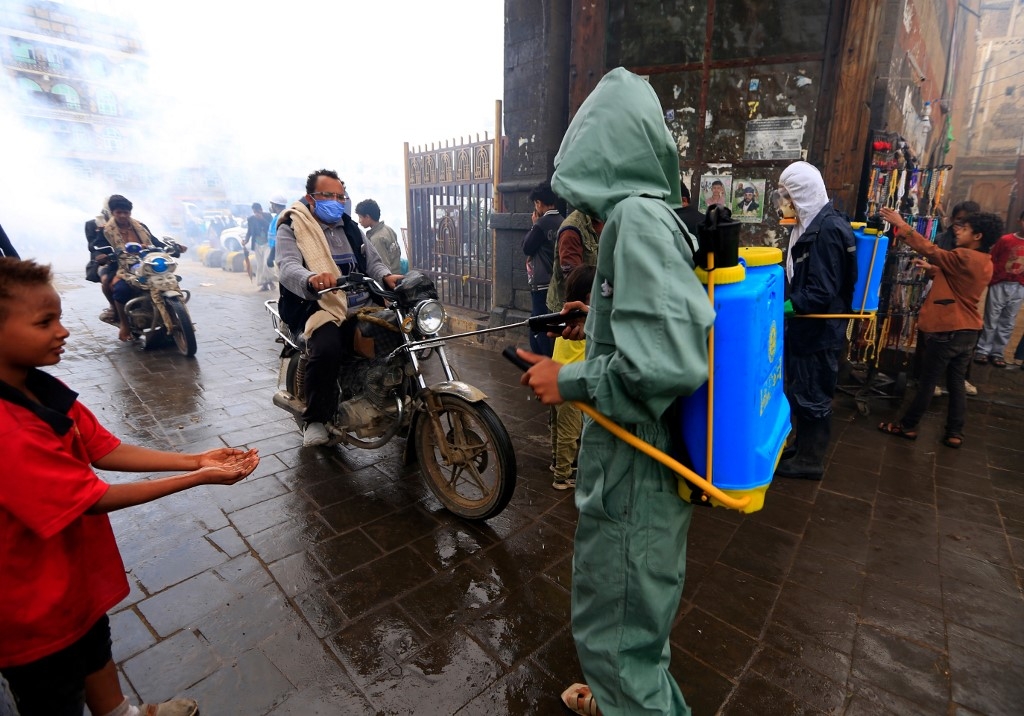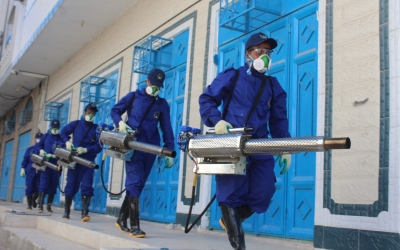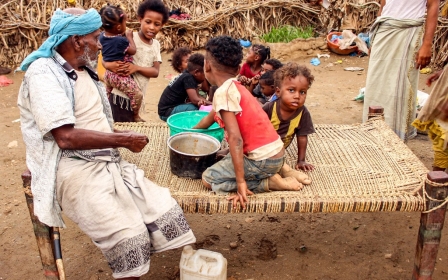Yemen's Houthis confirm first coronavirus case in rebel-held areas

Authorities in Houthi-held areas of Yemen have confirmed their first case of the coronavirus, sparking fears of a major outbreak in the impoverished north.
During a news conference on Tuesday, the Houthis' health minister, Taha al-Mutawakel, said a man from Somalia, who had been found dead in a hotel in the capital Sanaa on Sunday, had tested positive for the virus posthumously.
"We received a report about a situation in a hotel on Sunday and epidemiological investigation teams went there immediately, where the affected person had died," Mutawakel said.
The deceased man, who has yet to be named, had underlying liver and kidney problems, the minister added.
One of the last countries to declare Covid-19 infections, Yemen has reported 21 cases, including three deaths since 10 April, in territory held by both the internationally recognised government and the Houthi movement.
On Tuesday, Yemen's UN-recognised government, which administers large swathes of territory in the south, reported nine new cases.
Speaking on condition of anonymity, a source in Aden's health office told MEE earlier this week that the country's health care system was ill-equipped to deal with a widespread Covid-19 outbreak.
"The health care system has been collapsing since 2015. We could not help the patients of cholera and dengue fever, and we definitely cannot fight Covid-19," he said.
"That's why we have been calling on people to take precautionary measures into consideration and try to stay at home."
The UN warned on Monday that around 16 million Yemenis, around 55 percent of the population, were at risk of contracting the virus.
Before the first case in Houthi-held territory was announced, the UN said it feared the disease could be spreading undetected among an acutely malnourished population with inadequate testing capabilities and protective equipment.
Around 80 percent, or 24 million people, rely on humanitarian aid and 10 million are at risk of starvation.
"Yemen cannot face two fronts at the same time: a war and a pandemic," UN special envoy Martin Griffiths told the Security Council last month.
"The new battle that Yemen faces in confronting the virus will be all-consuming. We can do no less than stop this war and turn all our attention to this new threat."
Middle East Eye propose une couverture et une analyse indépendantes et incomparables du Moyen-Orient, de l’Afrique du Nord et d’autres régions du monde. Pour en savoir plus sur la reprise de ce contenu et les frais qui s’appliquent, veuillez remplir ce formulaire [en anglais]. Pour en savoir plus sur MEE, cliquez ici [en anglais].





